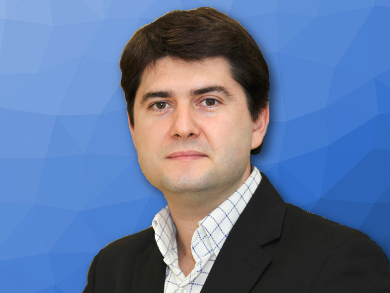Get the Most Out of Your Doctorate: Tips for Excelling Without Dying in the Attempt
Inspired by Nobel laureate Santiago Ramón y Cajal [1], Javier García Martínez, Professor at the University of Alicante, Spain, and Past-President of the International Union of Pure and Applied Chemistry (IUPAC), shares tips for young scientists, drawing on insights from both emerging and established chemists.
In this series, Javier García Martínez distills Cajal’s key insights into actionable advice that any young scientist can apply. Drawing on his experience as a Ph.D. advisor, prolific author, and leading researcher in molecular nanotechnology, Javier adds context to Cajal’s timeless lessons. Every Tuesday and Friday, a new entry will be published, featuring practical advice and a quote from D. Santiago Ramón y Cajal’s book on the day’s topic. This series will also include insights from Vera Koester of ChemistryViews to provide additional perspective.
We invite you to read, reflect, and share your own thoughts in the comments as we explore practical strategies for making the most of your Ph.D. journey.
💡Tip 7: Take Care of Your Physical and Mental Health
Scientific research requires intense focus and dedication, but sustained productivity is only possible when you prioritize your well-being. A Ph.D. is a marathon, not a sprint—taking care of yourself ensures that you can perform at your best in the long run.
Here’s how you can maintain both physical and mental well-being during your Ph.D.:
- Prioritize sleep, nutrition, and exercise:
o Lack of sleep impairs concentration, memory, and decision-making. Aim for a consistent sleep schedule, even during busy periods.
o Proper nutrition fuels cognitive function—avoid excessive caffeine and processed foods, and ensure you’re getting a balanced diet.
o Regular exercise reduces stress and improves mental clarity. Even short walks between experiments or stretching during breaks can make a difference. - Set boundaries to avoid burnout:
o Define clear work hours and stick to them. It’s easy to fall into the habit of working late nights, but overworking leads to diminishing returns.
o Learn to say no to commitments that don’t align with your priorities. Protecting your time allows you to focus on meaningful tasks.
o Separate work and personal life—whether it’s having a dedicated workspace or avoiding emails after a certain hour, small habits help maintain balance. - Take mental health breaks:
o Engaging in hobbies, meditation, or social activities can help prevent stress from accumulating.
o Find relaxation techniques that work for you—whether it’s mindfulness, deep breathing, journaling, or listening to music.
o Don’t hesitate to seek professional support if needed. Universities often offer counseling services, and talking to a mentor or therapist can provide valuable perspective. - Recognize warning signs of burnout:
o Feeling constantly exhausted, losing motivation, or struggling to focus can be signs that you need to step back.
o Pay attention to how you feel—if stress is overwhelming, take intentional breaks before it escalates. - Create small habits to remind yourself to take breaks:
o Set a timer for short, frequent breaks (e.g., the Pomodoro technique).
o Schedule brief walks or stretching sessions throughout the day.
o Use mindfulness apps or reminders to check in with yourself.
During intense research periods, it’s easy to neglect self-care, but remember: taking time to recharge isn’t wasted time—it’s an investment in your long-term success. A healthy mind and body will make you a more effective and resilient researcher.
“If a solution fails to appear … and yet we feel success is just around the corner, try resting for a while. … Like the early morning frost, this intellectual refreshment withers the parasitic and nasty vegetation that smothers the good seed.”
―Santiago Ramón y Cajal, Advice for a Young Investigator
I can only agree with that—though it’s often easier said than done. It’s something only you can and must take care of—if you don’t, who will?
How do you remind yourself of this during periods of intense work or when things become overwhelming? Feel free to share your tips in the comments.
―Vera Koester
➜ Tip 8:
will be published on April 25
➜ Tip 6
References
[1] Santiago Ramón y Cajal, Reglas y Consejos sobre Investigación Cientifica: Los tónicos de la voluntad, Editorial Médica Panamericana, Madrid, Spain, 2011. ISBN-13: 978-8467037753
[2] Javier García-Martínez, How To Make the Most of your PhD?, Bunsen-Magazin 01/2025.
Also of Interest

Interview: Can I Become an Entrepreneur and If So, How?
An interview with president of IUPAC, professor, entrepreneur, and author Javier García-Martínez

Collection: Student Career Resources
A growing compilation of resources that help you in your career
![9 Tips for a Successful PhD [Tip 7]](https://www.chemistryviews.org/wp-content/uploads/2025/04/202503_9-Tips-for-a-Successful-PhD_Tip7.png)

![9 Tips for a Successful PhD [Tip 6]](https://www.chemistryviews.org/wp-content/uploads/2025/04/202503_9-Tips-for-a-Successful-PhD_Tip6-125x94.png)

![9 Tips for a Successful PhD [Tip 5]](https://www.chemistryviews.org/wp-content/uploads/2025/04/202503_9-Tips-for-a-Successful-PhD_Tip5-125x94.png)
![9 Tips for a Successful PhD [Tip 4]](https://www.chemistryviews.org/wp-content/uploads/2025/04/202503_9-Tips-for-a-Successful-PhD_Tip4-125x94.png)